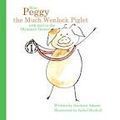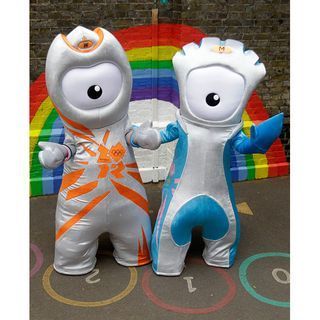Jubilee done and dusted: now the Olympics
I was just beginning to feel that the media-fest of the Jubilee was well and truly over.. and indeed was reflecting on how we might remember it all in a year's time, even ten years' time. The rain? The apparent popular enthusiasm for her Majesty? The poor old Duke being consigned to hospital after hours of standing up in the (almost) freezing cold on that boat? (Personally I have to confess to rather liking the St Paul's do, so far as I could see it on the corner of my laptop . . .it was against all my instincts, but the stunning architecture and the choir certainly beat the aging pop stars of the night before.)
But, as I quickly realised, we are only spared national hysteria for a few weeks, because the Olympic Games are looming. For me this means a ringside view of that torch, which is going to run past my very house on 8 July... on its way, as I recall, to a waiting car to be driven along the A14 to St Ives (isnt this rather a cheat??)...more pressing though it also means two lectures to be given on the Olympic Games next weekend. They are both at the the British Museum, one on Friday early evening focussing on the Much Wenlock Olympics (that appears to be fully booked), and one on Saturday late afternoon on the Roman Olympic Games (it's free, but booking is advised).
I am still working out exactly what to say...
The Roman Olympics is going to pick up one or two of the themes you might have noticed that I've been kicking around. How do we incorporate the Roman period into the ancient Olympics? How do we know what we know about the ancient Olympics? Well actually mostly through writer of the Roman period -- so what difference does that make? I've just written a bit about that in an article for the Guardian, which should appear next week... but this lecture is going to move in a rather different direction. I have got interested in the whole history of cheating at the games (and how far we see that through Roman eyes).
Anyway I'm off to the library now to check out a few more things... like how come there are so many victors from Alexandria in the later period? and how many contestants were there in these events (rather few I suspect.. more school sportsday than European championship).
Then there's Wenlock, currently a name blighted by one of those awful mascots that I've spoiled the top of this post with (Wenlock is on the left I think). I am doing this talk on the slightly spurious grounds that I actually come from Much Wenlock and once competed in their Olympics (not track and field, but "stuffed animal under 12" class). What I want to try to do is put the whole Wenlock phenomenon in a bit of a wider context... of all those different attempts in the late 19th century to revive the Olympics in some very odd ways!
Meanwhile, in my Olympic researches, I've found some stuff you might have missed.
 There's a great blog on all kinds of Olympic matters by Jason König in St Andrews; and there are some fun books on Much Wenlock that have recently appeared -- Catherine Beale's Born out of Wenlock (great title), and a nice "pictorial history" of the Games, published by a local Wenlock publisher ; they also have a nice kids book out -- about a Wenlock Olympian Pig (on the left!).
There's a great blog on all kinds of Olympic matters by Jason König in St Andrews; and there are some fun books on Much Wenlock that have recently appeared -- Catherine Beale's Born out of Wenlock (great title), and a nice "pictorial history" of the Games, published by a local Wenlock publisher ; they also have a nice kids book out -- about a Wenlock Olympian Pig (on the left!).
Mary Beard's Blog
- Mary Beard's profile
- 4117 followers




